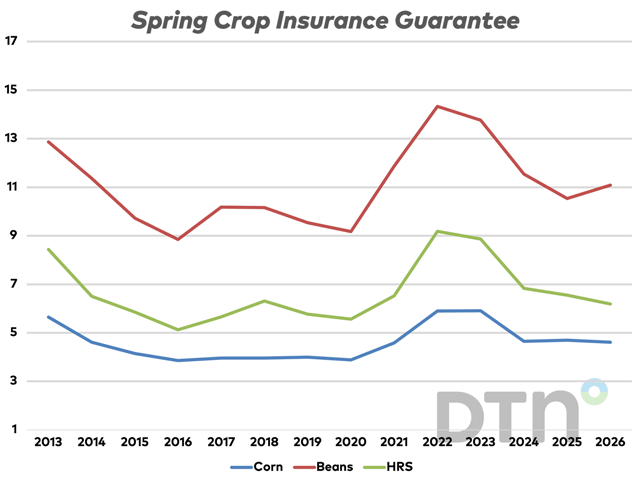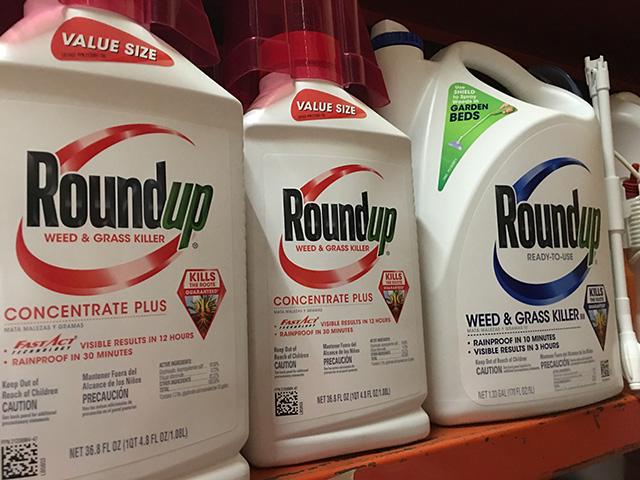DOJ Urges Rejection of Roundup Petition
US Solicitor General Tells SCOTUS to Reject Bayer AG's Petition on Roundup Case
LINCOLN, Neb. (DTN) -- The U.S. Department of Justice filed an opinion with the U.S. Supreme Court on Tuesday recommending the court deny a petition filed by Bayer AG asking the court to review a verdict in a Roundup cancer lawsuit.
In August 2021, Bayer AG asked the Supreme Court to review a landmark Roundup case, arguing in a petition that a federal appeals court committed errors in the case brought by non-Hodgkin's lymphoma victim Edwin Hardeman.
Bayer said in its petition, Monsanto Company v. Edwin Hardeman, that the U.S. Court of Appeals for the Ninth Circuit in San Francisco committed two errors worthy of review.
The company said state law failure-to-warn claims at the center of the case were preempted by federal law and the admission of expert testimony departed from federal standards, leading to what Bayer said was "unsupported testimony" on Roundup's safety profile.
"The court of appeals correctly held that FIFRA (Federal Insecticide, Fungicide, and Rodenticide Act) does not preempt respondent's claims, and that decision does not conflict with any decision of this court or another court of appeals," the U.S. solicitor general said in a brief filed with the Supreme Court.
"The court's evidentiary ruling likewise does not conflict with the standards applied by other circuits in considering the admissibility of expert testimony. The petition for a writ of certiorari should be denied."
P[L1] D[0x0] M[300x250] OOP[F] ADUNIT[] T[]
The DOJ said it finds no evidence in statute that federal law preempts state law when it comes to labeling requirements on pesticides.
"Although some aspects of EPA-approved labeling may preempt particular state-law requirements, EPA's approval of labeling that does not warn about particular chronic risks does not by itself preempt a state-law requirement to provide such warnings," the DOJ brief said.
In a statement to DTN, Bayer AG said it continues to believe it has good legal arguments the Supreme Court should consider.
"Indeed, the expert U.S. agency, the Environmental Protection Agency, has consistently found that glyphosate-based herbicides can be used safely and are not carcinogenic," Bayer said.
"Therefore, a cancer warning would be false and misleading and would be preempted by the Federal Insecticide, Fungicide, and Rodenticide Act. The decision to accept or deny review rests with the Supreme Court, which will consider the views of the parties -- including an additional brief to be filed by the company -- as well as the brief from the solicitor general. Regardless of the final outcome at the Supreme Court, the company is fully prepared to move forward with its five-point plan, manage litigation risks and bring closure to the Roundup litigation."
In 2019, a jury awarded Hardeman $80 million in damages after the ruling his non-Hodgkin's lymphoma was caused by his use of Roundup. The damages later were reduced to $25 million. Bayer has faced thousands of similar lawsuits connected to the glyphosate-based product.
In May 2021, the Ninth Circuit upheld the Hardeman judgment. Bayer officials have maintained the Hardeman case could shape how future cases are litigated. Also, that month, a federal court in California rejected Bayer's $2 billion Roundup settlement, ruling it would not adequately address the concerns of families who may later be diagnosed with non-Hodgkin's lymphoma.
Bayer AG recently filed a second petition for writ of certiorari on a second Roundup trial.
For the second time in eight months, Bayer petitioned the U.S. Supreme Court to review a verdict in a Roundup product liability case. The new petition, filed in March, however, is the first Roundup challenge filed by Bayer alleging a California jury's awarding of $87 million in damages to cancer victims violated the Constitution.
The new petition asks the court to review the verdict in Pilliod v. Monsanto Company. In August 2021, a California state appellate court upheld the verdict that awarded $87 million in damages to Alva and Alberta Pilliod of Livermore, California. The couple had used Roundup at home for about 30 years; later, the Pilliods developed similar types of cancers, according to court documents.
Read more on DTN:
"Bayer: New Roundup Settlements Unlikely," https://www.dtnpf.com/…
Todd Neeley can be reached at todd.neeley@dtn.com
Follow him on Twitter @DTNeeley
(c) Copyright 2022 DTN, LLC. All rights reserved.






